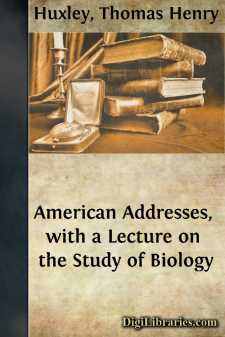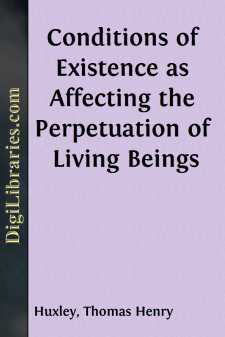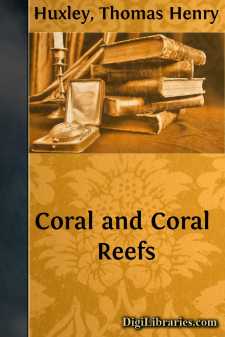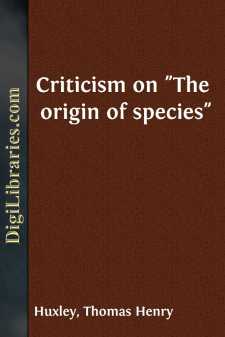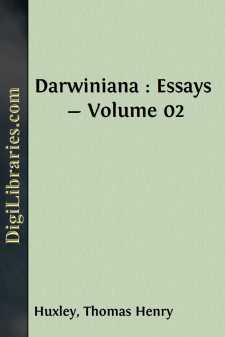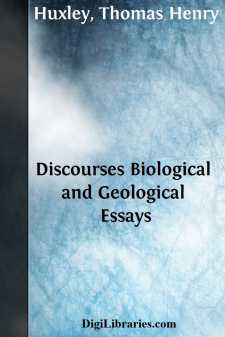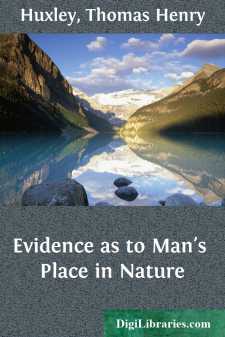Categories
- Antiques & Collectibles 13
- Architecture 36
- Art 48
- Bibles 22
- Biography & Autobiography 813
- Body, Mind & Spirit 142
- Business & Economics 28
- Children's Books 13
- Children's Fiction 10
- Computers 4
- Cooking 94
- Crafts & Hobbies 4
- Drama 346
- Education 46
- Family & Relationships 57
- Fiction 11828
- Games 19
- Gardening 17
- Health & Fitness 34
- History 1377
- House & Home 1
- Humor 147
- Juvenile Fiction 1873
- Juvenile Nonfiction 202
- Language Arts & Disciplines 88
- Law 16
- Literary Collections 686
- Literary Criticism 179
- Mathematics 13
- Medical 41
- Music 40
- Nature 179
- Non-Classifiable 1768
- Performing Arts 7
- Periodicals 1453
- Philosophy 64
- Photography 2
- Poetry 896
- Political Science 203
- Psychology 42
- Reference 154
- Religion 513
- Science 126
- Self-Help 84
- Social Science 81
- Sports & Recreation 34
- Study Aids 3
- Technology & Engineering 59
- Transportation 23
- Travel 463
- True Crime 29
Thomas Henry Huxley
Thomas Henry Huxley (1825-1895) was an influential English biologist and anthropologist known for his strong advocacy of Charles Darwin's theory of evolution. Often referred to as "Darwin's Bulldog," Huxley fervently defended evolutionary theory against critics and contributed significantly to the public understanding of science. He also played a crucial role in developing scientific education in Britain, emphasizing the importance of empirical evidence and rational thought.
Author's Books:
Sort by:
THE THREE HYPOTHESES RESPECTING THE HISTORY OF NATURE. We live in and form part of a system of things of immense diversity and perplexity, which we call Nature; and it is a matter of the deepest interest to all of us that we should form just conceptions of the constitution of that system and of its past history. With relation to this universe, man is, in extent, little more than a mathematical point;...
more...
I — THE LIFE OF HUXLEY Of Huxley's life and of the forces which moulded his thought, the Autobiography gives some account; but many facts which are significant are slighted, and necessarily the later events of his life are omitted. To supplement the story as given by him is the purpose of this sketch. The facts for this account are gathered entirely from the Life and Letters of Thomas Henry...
more...
I PROLOGUE [Controverted Questions, 1892] Le plus grand service qu'on puisse rendre à la science est d'y faire place nette avant d'y rien construire.—CUVIER. Most of the Essays comprised in the present volume have been written during the last six or seven years, without premeditated purpose or intentional connection, in reply to attacks upon doctrines which I hold to be well founded;...
more...
IN the last Lecture I endeavoured to prove to you that, while, as a general rule, organic beings tend to reproduce their kind, there is in them, also, a constantly recurring tendency to vary—to vary to a greater or to a less extent. Such a variety, I pointed out to you, might arise from causes which we do not understand; we therefore called it spontaneous; and it might come into existence as a...
more...
THE subject upon which I wish to address you to-night is the structure and origin of Coral and Coral Reefs. Under the head of "coral" there are included two very different things; one of them is that substance which I imagine a great number of us have champed when we were very much younger than we are now,—the common red coral, which is used so much, as you know, for the edification and the...
more...
In the course of the present year several foreign commentaries upon Mr. Darwin's great work have made their appearance. Those who have perused that remarkable chapter of the 'Antiquity of Man,' in which Sir Charles Lyell draws a parallel between the development of species and that of languages, will be glad to hear that one of the most eminent philologers of Germany, Professor...
more...
I. ADMINISTRATIVE NIHILISM. (AN ADDRESS TO THE MEMBERS OF THE MIDLAND INSTITUTE, OCTOBER 9TH, 1871.) To me, and, as I trust, to the great majority of those whom I address, the great attempt to educate the people of England which has just been set afoot, is one of the most satisfactory and hopeful events in our modern history. But it is impossible, even if it were desirable, to shut our eyes to the...
more...
THE DARWINIAN HYPOTHESIS [1859] The hypothesis of which the present work of Mr. Darwin is but the preliminary outline, may be stated in his own language as follows:— "Species originated by means of natural selection, or through the preservation of the favoured races in the struggle for life." To render this thesis intelligible, it is necessary to interpret its terms. In the first place, what...
more...
I ON A PIECE OF CHALK [1868] If a well were sunk at our feet in the midst of the city of Norwich, the diggers would very soon find themselves at work in that white substance almost too soft to be called rock, with which we are all familiar as "chalk." Not only here, but over the whole county of Norfolk, the well-sinker might carry his shaft down many hundred feet without coming to the end of...
more...
ON THE NATURAL HISTORY OF THE MAN-LIKE APES Ancient traditions, when tested by the severe processes of modern investigation, commonly enough fade away into mere dreams: but it is singular how often the dream turns out to have been a half-waking one, presaging a reality. Ovid foreshadowed the discoveries of the geologist: the Atlantis was an imagination, but Columbus found a western world: and though...
more...


